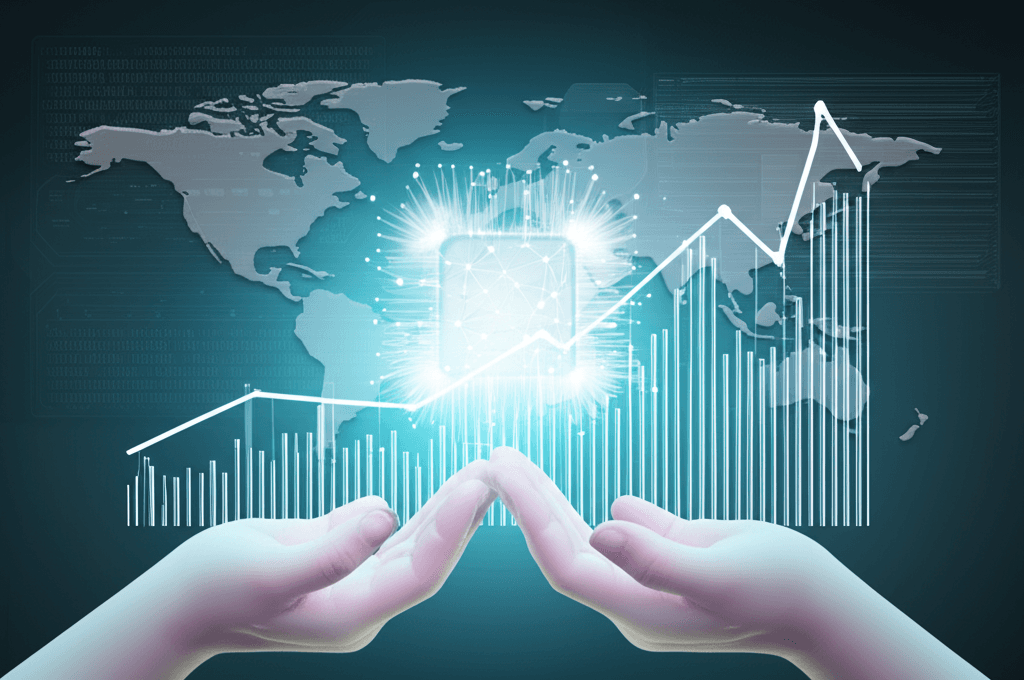AI's Global Rise Demands Urgent Ethical Oversight and Responsible Growth
As AI Appreciation Day dawns, we reflect on its booming impact, ethical challenges, and the path to responsible innovation.
July 16, 2025

As the world marks AI Appreciation Day on July 16, the technology and business sectors are taking stock of artificial intelligence's rapid integration into daily life and commerce.[1][2] Established in May 2021 by A.I. Heart LLC, the day was created to celebrate the positive contributions of AI, while also fostering a crucial dialogue about its ethical implications.[1][3] From its formal beginnings at a Dartmouth College workshop in 1956 to its now ubiquitous presence in everything from smartphone apps to complex healthcare diagnostics, AI has evolved from a theoretical concept into a powerful force reshaping industries and society.[4][2] This annual observance serves as a moment for industry leaders, innovators, and the public to reflect on the immense progress of AI and consider the path forward for its responsible development.[4]
The impact of artificial intelligence on the global economy and business operations is already profound and continues to accelerate. Projections indicate that AI could contribute as much as $15.7 trillion to the global economy by 2030.[5] Businesses are increasingly prioritizing AI, with 83% of companies stating that it is a top priority in their strategic planning.[6] This widespread adoption is driven by the tangible benefits of increased productivity and efficiency. Studies have shown that AI can improve employee productivity by as much as 40%, and a majority of business owners believe the technology will boost their output.[6] The technology's influence spans across various sectors, with the manufacturing industry expected to see a gain of $3.8 trillion by 2035.[6] Major tech companies like Google, Microsoft, and Amazon are leading the charge in AI research and development, leveraging their vast resources to push the boundaries of what is possible.[7] However, the enthusiasm for AI is not limited to tech giants; the financial services sector, for instance, has 35 companies in the top 100 for AI maturity, underscoring the technology's widespread integration.[8] In India, the government's "AI for All" initiative highlights a national strategy to use AI for both economic growth and social equity, with applications transforming healthcare, agriculture, and governance.[9]
While the celebration of AI's achievements is widespread, it is accompanied by a growing and necessary conversation about the ethical dimensions and societal consequences of this powerful technology. The creators of AI Appreciation Day intended for it to shine a spotlight on AI ethics and inspire a national dialogue on the topic.[3] Industry leaders echo this sentiment, emphasizing that the focus should not just be on technological advancement but on responsible innovation.[2] Concerns about privacy, bias in algorithms, the potential for misinformation, and job displacement are at the forefront of these discussions.[2] Some estimates suggest that AI could displace 85 million jobs globally by 2025, even as it is projected to create 97 million new ones.[5] This highlights the need for a workforce that can adapt to new roles shaped by AI-driven efficiencies.[10] The issue of data governance is also a key concern, with experts pointing out that successful and ethical AI implementation depends on curated data and human oversight, not just machine-driven systems.[11] The rise of AI has also introduced new cybersecurity challenges, as the same technology that can enhance security can also be weaponized by malicious actors.[12]
Looking ahead, the trajectory of artificial intelligence promises further integration into the fabric of society, moving from a frontier technology to a foundational element of modern life. The focus is shifting from simply implementing AI to harnessing its full potential in a way that amplifies human capabilities and addresses real-world needs.[13][14] In areas like home security, AI is evolving from basic motion detection to intelligent systems that can distinguish between people, vehicles, and animals, significantly reducing false alarms.[15] In healthcare, AI is enhancing diagnostics and personalizing treatment, while in the travel industry, it holds the potential to create highly customized experiences.[16][11] However, scaling these applications across entire organizations remains a significant challenge.[11] The development of responsible AI practices and clear regulations is seen as crucial to navigating the future.[3] As one industry leader noted, AI Appreciation Day is ultimately about the choices humans make, choices that "still echo at human scale," reminding us that the stewardship of this powerful technology rests in our hands.[2] The continued growth and acceptance of AI will depend on building trust and ensuring that its benefits are distributed equitably across society.[15]
Sources
[2]
[6]
[7]
[8]
[11]
[12]
[13]
[14]